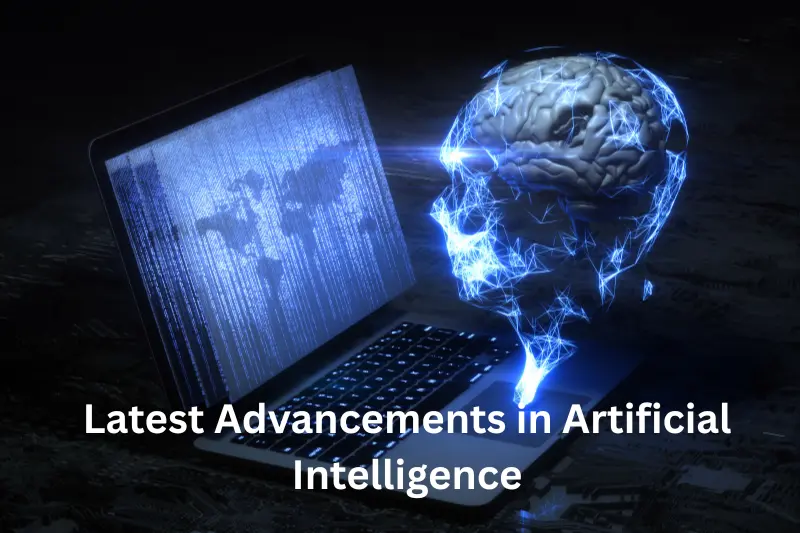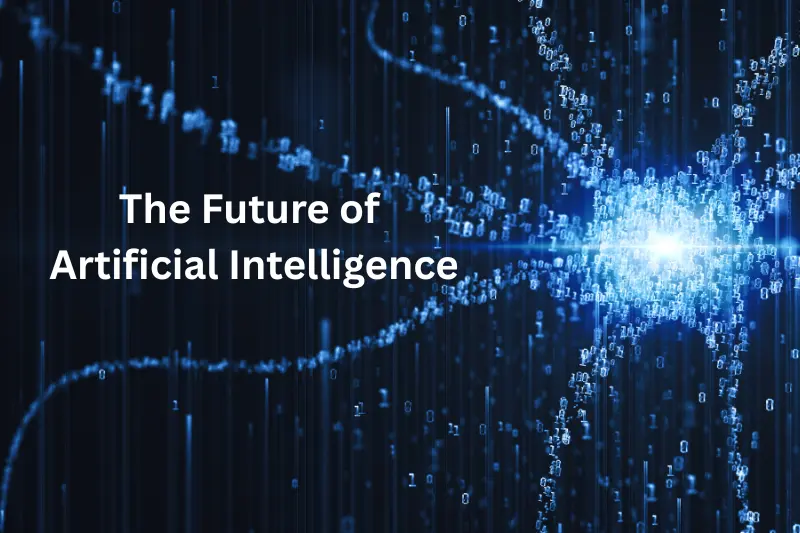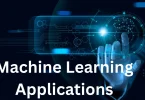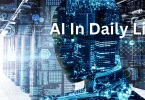Artificial intelligence is evolving faster than ever before. From automating everyday tasks to making complex decisions in the blink of an eye, AI is transforming the way we live and work. With every passing day, new breakthroughs emerge, challenging our understanding of what technology can do. Whether it’s improving healthcare, revolutionizing business, or enhancing entertainment, artificial intelligence updates are at the forefront of innovation. These updates offer a glimpse into the future, showing us how AI continues to push boundaries and redefine industries.
In this article, we’ll explore the most recent artificial intelligence updates, showcasing the latest advancements and how they are shaping the world we live in. From cutting-edge developments in machine learning to the growing role of AI in the global economy, we’ll cover it all. Let’s dive into the exciting world of AI and see what’s next in this rapidly evolving field.
What Are Artificial Intelligence Updates?
Artificial intelligence updates refer to the latest changes, improvements, and advancements in AI technology. These updates can range from new algorithms and models to innovative uses of AI across various sectors. The field of AI is vast, and staying up-to-date with the latest developments is crucial for understanding how AI is evolving and its impact on society.
- New Algorithms and Models: Constant improvements are being made in AI algorithms, allowing for faster and more accurate decision-making.
- Technological Advancements: Updates in hardware and software allow AI systems to process data more efficiently, leading to quicker results.
- Practical Applications: The practical applications of AI continue to grow, with updates focusing on real-world problem-solving.
As AI continues to grow, it’s essential to stay informed about these updates to understand the potential and limitations of AI in different industries.
Latest Advancements in Artificial Intelligence
The field of artificial intelligence is seeing rapid advancements in various areas. These updates often include breakthroughs in machine learning, neural networks, natural language processing, and more. Let’s break down some of the most significant updates that are currently shaping the AI landscape.

1. Machine Learning and Deep Learning Breakthroughs
- Improved Algorithms: Machine learning models are becoming more efficient, offering better predictions and classifications. This is a result of continual improvements in algorithms, making them more adaptable to different types of data.
- Deep Learning Networks: Deep learning has made significant strides with improved training techniques, making AI models smarter and more accurate.
2. Natural Language Processing (NLP) Developments
- Enhanced Chatbots: NLP advancements have led to the creation of more sophisticated chatbots capable of understanding and responding to human language in a more natural and human-like manner.
- Better Translation Tools: AI-powered translation tools have become more accurate, allowing for seamless communication across languages.
3. Reinforcement Learning and Autonomous Systems
- Self-Learning Systems: Reinforcement learning allows AI to learn from its mistakes, improving its performance over time. This is particularly useful in applications such as autonomous vehicles and robotics.
- Autonomous Vehicles: AI updates in the form of more sophisticated sensors and algorithms have made autonomous driving safer and more reliable.
4. AI in Healthcare: Transforming Diagnostics
- Faster Diagnostics: AI-powered diagnostic tools are becoming increasingly accurate, allowing healthcare providers to make quicker, more informed decisions.
- Personalized Medicine: Machine learning algorithms are now capable of analyzing genetic data to recommend personalized treatment plans for patients.
The Role of AI in Business Innovation
AI is not just revolutionizing technology; it’s also transforming business operations across the globe. From streamlining processes to enhancing customer service, artificial intelligence updates are providing businesses with the tools they need to stay competitive.
1. Automating Routine Tasks
- Robotic Process Automation (RPA): AI-powered bots are handling repetitive administrative tasks, freeing up human workers for more strategic roles.
- Data Analysis: AI is automating data analysis, offering companies insights that would have previously taken hours to obtain manually.
2. AI in Customer Service
- Chatbots and Virtual Assistants: AI-powered chatbots are improving customer service by providing instant support to customers, 24/7.
- Predictive Customer Support: AI systems are analyzing customer data to predict issues and offer solutions before they arise.
3. AI for Business Analytics
- Data-Driven Decisions: AI is helping businesses make smarter decisions by analyzing vast amounts of data and offering actionable insights.
- Predictive Analytics: AI models are able to predict trends and behaviors, helping businesses stay ahead of the curve.
Ready to stop wondering and start knowing? Let’s dive in.
New Laptops 2025: Experience Power Like Never Before
Gadget Comparisons You Need Before Buying Anything
Uncover the Latest Tech News That’s Changing Everything
Must-See Tech Industry Updates You Can’t Miss
AI and Its Impact on Various Industries
Artificial intelligence is making waves in a wide range of industries, bringing about artificial intelligence updates that are transforming the way businesses operate and how people interact with technology.
1. AI in Education
- Personalized Learning: AI is making education more personalized by adapting to each student’s needs and learning pace.
- Automated Grading: AI-powered systems are now capable of grading assignments and exams, saving teachers valuable time.
2. AI in Entertainment and Media
- Content Personalization: Streaming services like Netflix are using AI to recommend content tailored to each user’s preferences.
- AI in Game Development: AI is enhancing video games by making them more interactive and responsive to player actions.
3. AI in Finance
- Fraud Detection: AI is helping banks detect fraudulent transactions by analyzing patterns and flagging suspicious activities.
- Algorithmic Trading: AI is being used to automate trading decisions, allowing for faster and more accurate stock market predictions.
4. AI in Manufacturing
- Smart Factories: AI is transforming factories into smart, self-regulating systems that can optimize production and reduce waste.
- Predictive Maintenance: AI-powered systems predict when equipment is likely to fail, minimizing downtime and maintenance costs.
Ethical Considerations and Challenges in AI Development
As artificial intelligence updates continue to drive innovation, it’s important to address the ethical challenges and concerns that come with this technology.
1. Data Privacy Concerns
- Personal Data Protection: With AI systems processing vast amounts of personal data, there is growing concern over how that data is protected and used.
- Data Bias: AI models can inherit biases from the data they are trained on, leading to unfair outcomes in decision-making processes.
2. Job Displacement and Automation
- Job Loss Concerns: As AI automates more tasks, there is fear that many workers may be displaced, particularly in industries like manufacturing and customer service.
- Reskilling Opportunities: However, AI also creates opportunities for workers to learn new skills and transition into roles that require human creativity and judgment.
3. Accountability and Transparency
- Black Box Algorithms: Some AI models are so complex that it’s difficult to understand how they arrive at decisions, leading to concerns over accountability.
- Transparent AI: Developers are working to create AI systems that are more transparent and can explain their decision-making processes.
The Future of Artificial Intelligence
Looking ahead, the future of AI is incredibly promising. Artificial intelligence updates are likely to continue at an accelerating pace, with new advancements pushing the boundaries of what’s possible.

1. General AI: The Next Frontier
- Artificial General Intelligence (AGI): While current AI systems are specialized, researchers are working towards creating AGI – AI that can perform any intellectual task that a human can. This would mark a major milestone in AI development.
2. AI and Human Collaboration
- Augmented Intelligence: Rather than replacing humans, AI is likely to enhance human abilities, leading to new forms of collaboration between machines and people.
- AI for Creativity: AI is already being used in creative industries, and in the future, it may help artists, writers, and musicians create groundbreaking new works.
3. AI in Space Exploration
- Autonomous Spacecraft: AI is being used to develop spacecraft that can navigate and make decisions autonomously, which will be critical for future space missions.
- AI for Data Analysis: AI will be key in analyzing the massive amounts of data generated by space exploration, helping scientists make important discoveries.
Conclusion
As we’ve seen, artificial intelligence updates are not just transforming industries—they are reshaping the future itself. From revolutionary advancements in machine learning to the ethical challenges that accompany AI growth, the impact of these updates is far-reaching. As AI continues to evolve, it will open up new possibilities and opportunities, making it an exciting time to be part of this technological revolution. In the coming years, expect to see even more incredible artificial intelligence updates that will change the





